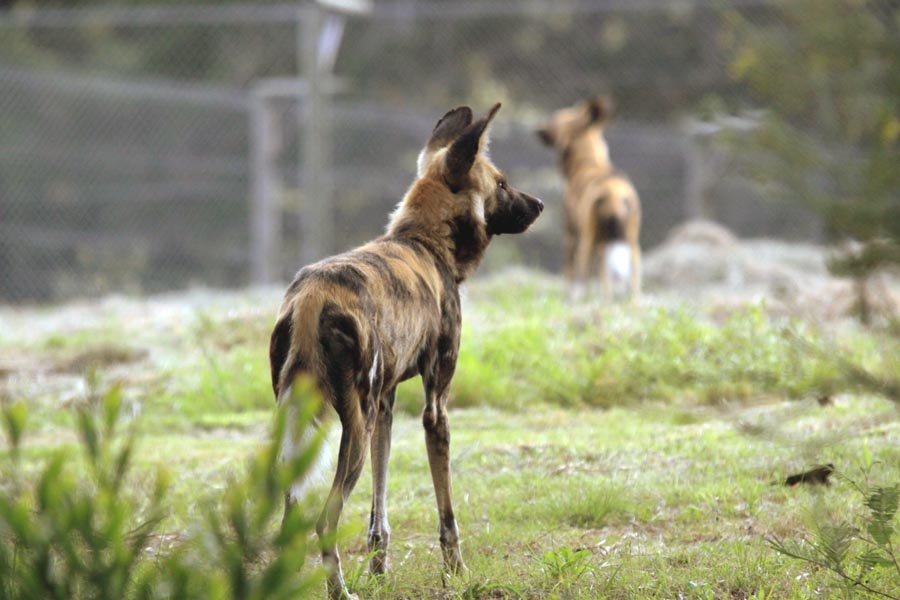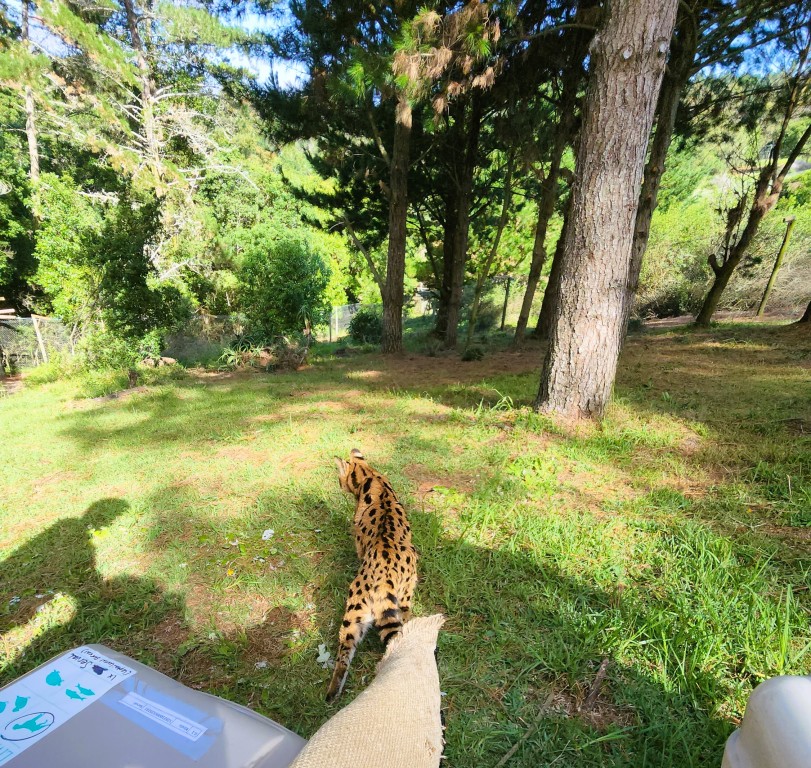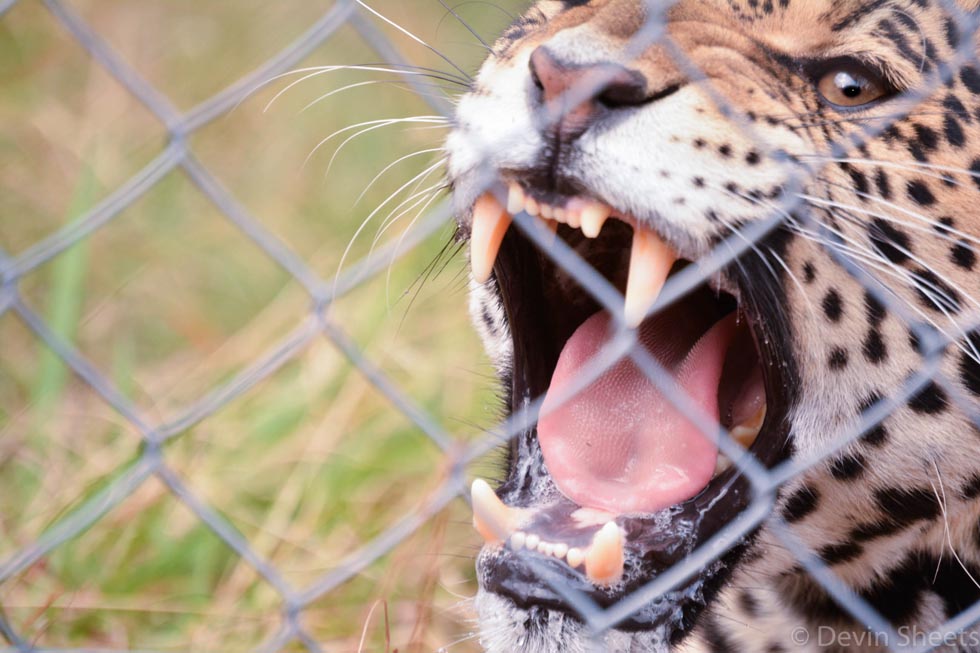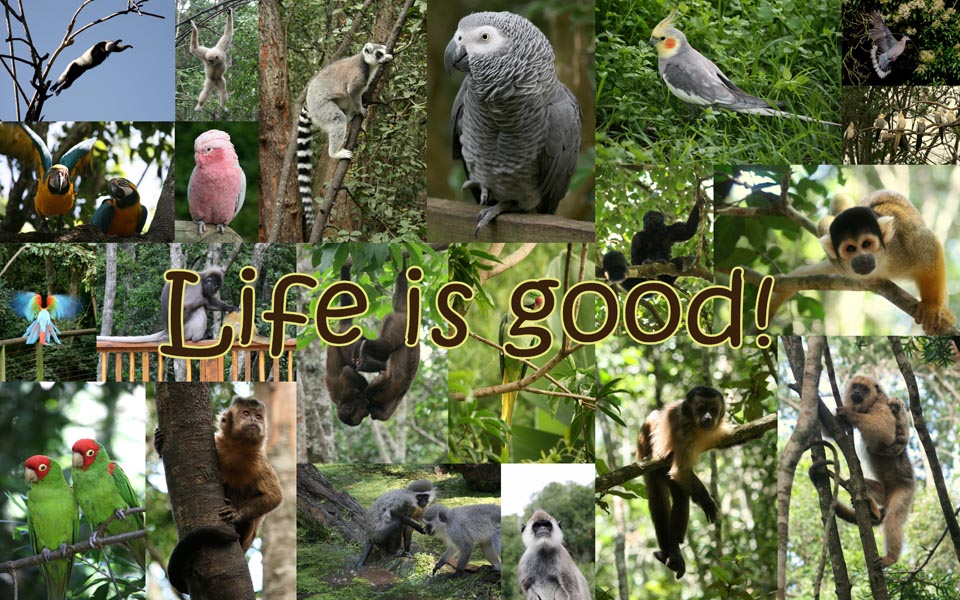Once a reserve large enough is found where the Wilddogs can safely be released and their future secure, will they be released back into the wild. Not only will Jukani visitors have the privilege of seeing these beautiful painted dogs whilst at our Sanctuary but guests will leave with the knowledge that these four will be released and that the conservation of wild dogs in nature is ongoing.
The four Wild dogs arrived from the red sands of the beautiful Kalahari on Thursday 9 October to their new home in the lush green forests of the Garden Route outside Plettenberg Bay.
Here is some really fun and amazing facts about African Painted Wild Dogs:
• The scientific name for the African Wild dog means “painted wolf”. No two wild dogs have the same markings, which makes them easily identifiable as individuals. This is why the original name “African Wild Dog” has been changed to “African Painted Wild Dog)
• African wild dogs have huge home ranges and are constant wanderers. In the Serengeti the estimated size of each pack’s territory is 1,500 km2. An area the size of Greater London, which is home to 7.5 million people, could therefore only support one or two African wild dog packs.
• Unlike many other species, once they reach maturity it is the males that stay within their natal pack while females migrate and join new packs.
• Pups that are old enough to eat solid food are given priority at a kill, even over the dominant pair.
• The dogs have a peculiar rather playful ceremony that bonds them for a common purpose and initiates each hunt. They start circulating among the other pack members, vocalizing and touching until they get excited and are ready to hunt.
• African wild dogs are intelligent and cooperative hunters. Some of the dogs run close to the prey while the others fall behind. They then take over when the front members tire.
• When feeding, they lack aggression towards each other and share the kill; even with members who may not have been involved in the actual hunt.
• The entire African wild dog pack shares responsibility for protecting the cubs, with both males and females babysitting the young.








